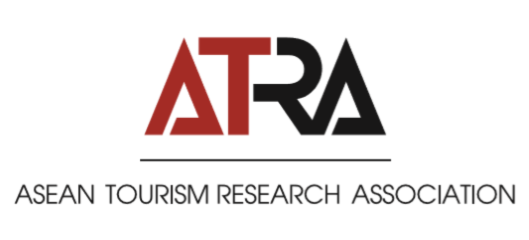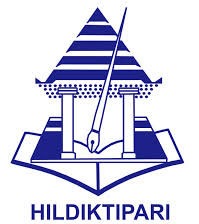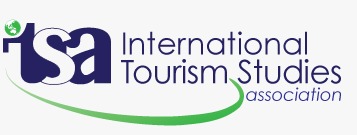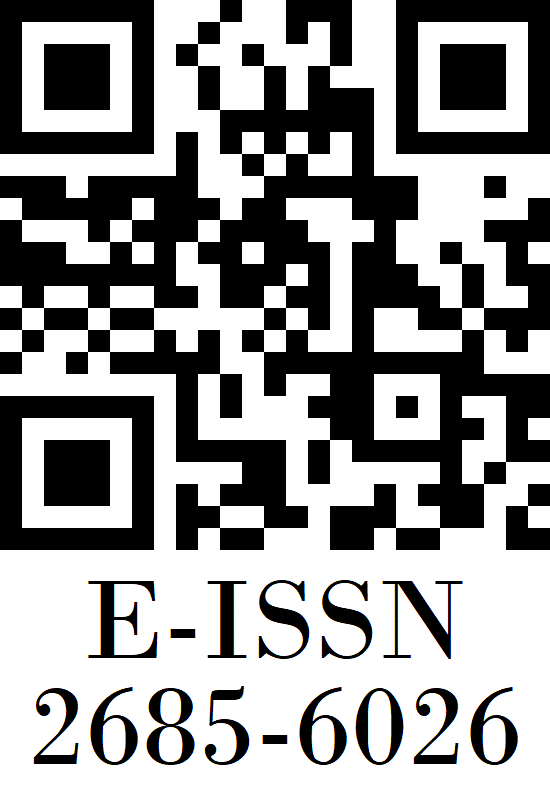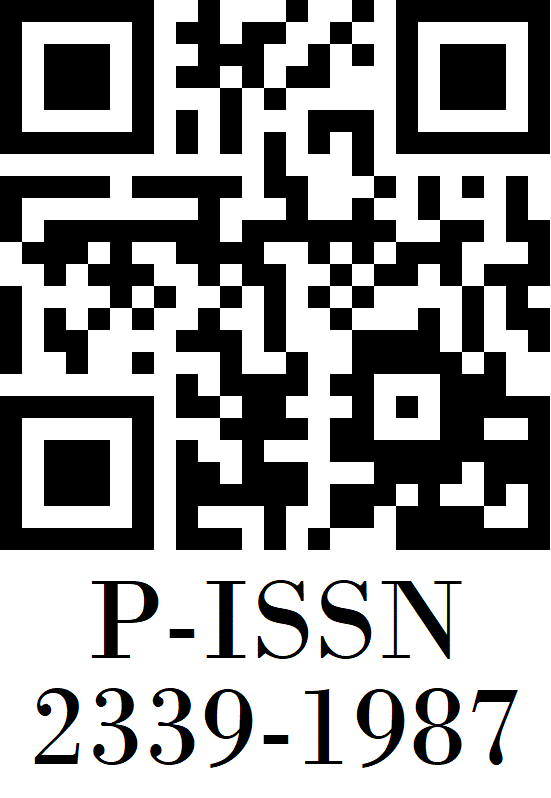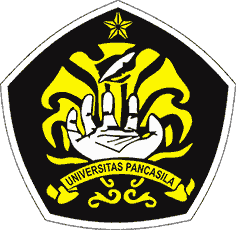KEPUASAN WISATAWAN DALAM PENGGUNAAN E-COMMERCE AGODA DALAM PEMESANAN HOTEL
DOI:
https://doi.org/10.35814/tourism.v8i1.1366Abstract
The industrial revolution that entered the 4.0 phase encouraged the industry to innovate, where one of the developing industries was e-commerce. As part of the OTA (tourism industry), e-commerce, or especially Agoda offers not only products but also services. However, at the moment, Agoda can be said to be left behind if we look at the ranking of the top brand awards, 2019. Therefore this research intends to examine the satisfaction of tourists (consumers) in using Agoda for booking a hotel. The approach used in this research is descriptive quantitative, where primary data is collected through a questionnaire with indicators of customer satisfaction (Repurchase, Word of Mouth, Brand Image, Product Quality, Price, Service Quality, and Emotional Factor). The scale used is Likert (1-5), and the sampling technique used is probability sampling, which is simple random sampling with a total of 100 respondents. The secondary data is taken from Agoda's website, books, literature, and previous research. The study was conducted during June-July 2019. This study found that the average tourist was quite satisfied - satisfied with Agoda's services in booking hotels. However, to maintain its existence, Agoda needs to make efforts to attract tourists, especially in improving the Agoda brand image. Also, the cooperation partners, which are hotels, will have high confidence in marketing their hotels through Agoda. Furthermore, in terms of the marketing segment, Agoda is very firmly attached to the millennial generation in meeting accommodation needs. However, it is interesting to investigate further the purpose of booking this accommodation, whether for travel needs or other vacation concepts, like one of the popular concepts nowadays, "staycation". This research is expected to provide information about service conditions and customer satisfaction using Agoda. So the results of this study can be useful not only for Agoda companies but also for other OTAs who offer similar products or services.
Keywords: kepuasan wisatawan, e-commerce, pemesanan hotel, online travel agent (OTA)
References
Chang, J. C. (2008). Tourists’ satisfaction judgments: An investigation of emotion, equity, and attribution. Journal of Hospitality & Tourism Research, 32(1), 108–134.
Cox, J., & Dale, B. G. (2001). Service quality and e-commerce: An exploratory analysis. Managing Service Quality: An International Journal.
Damanik, D., Wachyuni, S. S., Wiweka, K., & Setiawan, A. (2019). The Influence of Social Media on the Domestic Tourist’s Travel Motivation Case Study: Kota Tua Jakarta, Indonesia. Current Journal of Applied Science and Technology, 1–14. https://doi.org/10.9734/cjast/2019/v36i630263
Dedeke, A. N. (2016). Travel web-site design: Information task-fit, service quality and purchase intention. Tourism Management, 54, 541–554.
Dewanti, R., Masruroh, M., & Doni, B. (2007). Analisis Brand Equity Bina Nusantara University di Lingkungan SMU Jakarta. The Winners, 8(2), 197–213.
Dou, W., Lim, K. H., Su, C., Zhou, N., & Cui, N. (2010). Brand positioning strategy using search engine marketing. Mis Quarterly, 261–279.
Hair Jr, J. F., Hult, G. T. M., Ringle, C., & Sarstedt, M. (2016). A primer on partial least squares structural equation modeling (PLS-SEM). Sage publications.
Hariyani, R., & Sartana, B. T. (2014). Pengaruh Brand Image, Lokasi, Dan Fasilitas Pendidikan Terhadap Keputusan Calon Mahasiswa Untuk Berkuliah Di Universitas Dan Akademi Sekretari Budi Luhur Tahun Akademik 2014/2015. Jurnal Ekonomika Dan Manajemen, 3(2).
Hidayah, N. (2013). Analisis Jalur Brand Image Sebagai Anteseden Loyalitas:(Studi Pada Program Pascasarjana Universitas Terbuka). Jurnal Pendidikan Dan Kebudayaan, 19(1), 1–17.
Ho, C.-I., & Lee, Y.-L. (2007). The development of an e-travel service quality scale. Tourism Management, 28(6), 1434–1449.
Jannah, Miftahul. (2017). Persepsi Pengelola Hotel di Kota Pekanbaru Terhadap Fungsi OTA Sebagai Alat Pemasaran. JOM FISIP Vol. 4 No.2 Oktober 2017. Diakses dari https://media.neliti.com/media/publications/199393-none.pdf Tanggal 20 Maret 2020
Jalilvand, M. R., & Samiei, N. (2012). The effect of word of mouth on inbound tourists’ decision for traveling to Islamic destinations (the case of Isfahan as a tourist destination in Iran). Journal of Islamic Marketing.
Karyatiningsih, Ripah. (2011). Penerapan E-Commerce dalam Menunjang Strategi Bisnis Perusahaan (Studi Kasus PT Cheil Jedang Superfeed). Program Pascasarjana Manajemen dan Bisnis Institut Pertanian Bogor. Diakses pada https://www.academia.edu/33285611/PENERAPAN_ECOMMERCE_DALAM_MENUNJANG_STRATEGI_BISNIS_PERUSAHAAN_KASUS_DI_PT._CHEIL_JEDANG_SUPERFEED_CJS Tanggal 20 Maret 2020
Kotler, P., & Keller, K. L. (2009). Manajemen Pemasaran (Marketing Management). Jilid I. Edisi Ke, 13.
Kusmayadi, Wiweka, K., Parantika, A., Wahyuni, N., & Adnyana, P. P. (2019). A Time Series Analysis of Airline Pricing Behavior Case Study Jakarta (CGK)—Denpasar (DPS) Market. Journal of Economics, Management and Trade, 1–10. https://doi.org/10.9734/jemt/2019/v22i630105
Kusumaningrum, D. A., Wachyuni, S. S., Ritasari, R., Kusumaningsih, R., & Sahid, P. (2019). PENGARUH CUSTOMER SATISFACTION DAN BRAND IMAGE TERHADAP BRAND LOYALTY DI PANTAI SENTOSA RESTAURANT JAKARTA. Jurnal Sains Terapan Pariwisata, 4(1), 129–143.
Lipiäinen, H. (2014). Digitization of the Communication and its Implications for Marketing. Jyväskylä Studies in Business and Economics, 152.
Lu, B., Fan, W., & Zhou, M. (2016). Social presence, trust, and social commerce purchase intention: An empirical research. Computers in Human Behavior, 56, 225–237.
Mulhern, F. (2009). Integrated marketing communications: From media channels to digital connectivity. Journal of Marketing Communications, 15(2–3), 85–101.
Nursanti, T. D., Masruroh, M., & Adhikara, C. T. (2009). Kontribusi Brand Image Universitas Bina Nusantara terhadap Minat Sektor Industri Atas Alumni. The Winners, 10(1), 75–88.
Octavia, D., & Tamerlane, A. (2017). The influence of website quality on online purchase intentions on Agoda. Com with e-trust as a mediator. Binus Business Review, 8(1), 9–14.
Oktavianus, E. (2014). PENGARUH HARGA E-COMMERCE ACCOUNT AGODA TERHADAP KEPUTUSAN MENGINAP TAMU DI SERELA HO℡ RIAU BANDUNG [PhD Thesis]. Universitas Pendidikan Indonesia.
Phillips, W. J., Wolfe, K., Hodur, N., & Leistritz, F. L. (2013). Tourist word of mouth and revisit intentions to rural tourism destinations: A case of North Dakota, USA. International Journal of Tourism Research, 15(1), 93–104.
Pitchayadejanant, K., Chewwasung, K., Nakpathom, P., Srikasem, K., Lekmeechai, M., Chaiyawet, C., Suriwong, S., & Tso, C. W. (2019). Determinants of E-service Quality Towards Continuing Using Mobile Application for Hotel Reservation: Case of Agoda Application. Tourism Proceeding, 218–225.
Prayag, G., Hosany, S., Muskat, B., & Del Chiappa, G. (2017). Understanding the relationships between tourists’ emotional experiences, perceived overall image, satisfaction, and intention to recommend. Journal of Travel Research, 56(1), 41–54.
Rakić, B., & Rakić, M. (2014). Integrated marketing communications paradigm in digital environment: The five pillars of integration. Megatrend Revija, 11(1), 187–204.
Setiawan, B., Trisdyani, N. L. P., Adnyana, P. P., Adnyana, I. N., Wiweka, K., & Wulandani, H. R. (2018). The Profile and Behaviour of ‘Digital Tourists’ When Making Decisions Concerning Travelling Case Study: Generation Z in South Jakarta. Advances in Research, 1–13. https://doi.org/10.9734/AIR/2018/43872
Sindunata, I., & Wahyudi, B. A. (2018). PENGARUH e-WOM (ELECTRONIC-WORD-OF-MOUTH) TERHADAP KEPUTUSAN PEMBELIAN DI agoda. Com. Jurnal Hospitality Dan Manajemen Jasa, 6(1).
Sunyoto, D. (2013). Teori, kuesioner & analisis data untuk pemasaran dan perilaku konsumen. Yogyakarta: Graha Ilmu.
Top Brand Index Beserta Kategori Lengkap | Top Brand Award. (n.d.). Retrieved March 19, 2020, from https://www.topbrand-award.com/top-brand-index/
Wachyuni, S. S. (2019). The Effects of Service Quality, Customer Perceived Value, and Customer Satisfaction Towards Customer Loyalty of DAMRI Tour Bus. Journal of Business on Hospitality and Tourism, 5(2), 129–142.
Wachyuni, S. S., Wiweka, K., & Liman, M. (2018). PENGARUH ONLINE DISTRIBUTION CHANNELS (ODS) TERHADAP HOTEL REVENUE. Journal of Tourism and Economic, 1(2), Article 2. https://doi.org/10.36594/jtec.v1i2.29
Wiweka, K., Wachyuni, S. S., Simawang, S. P., Adnyana, P., & Wihartaty, E. (2019). Current Issues of Backpacking Tourism Development: Profile and Characteristics of “Sharecost” and “Opentrip” Tourist. Journal of Education, Society and Behavioural Science, 1–12. https://doi.org/10.9734/jesbs/2019/v30i230124




